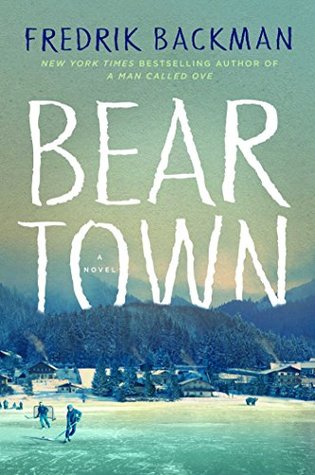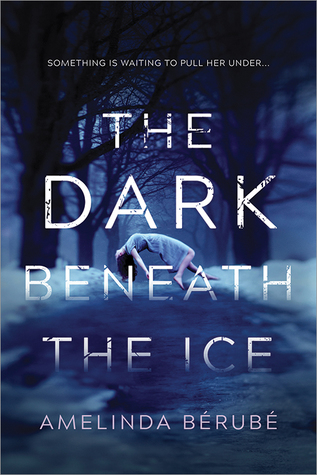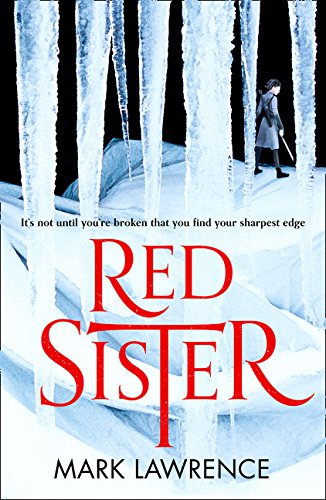
I read eight books this month, which feels like a lot for me. At some point I want to be able to read 10 books a month, but for now this feels like a victory. As to ratings that’s more of a mixed bag. I only really loved two of the books I read this month, which are both, not surprisingly, fantasy books with f/f romances — if books were comfort food that would be mine.
- I read 6 adult books, and 2 young adult.
- 4 Horror books.
- 2 Fantasy books.
- 1 Contemporary
- 1 Literary Fiction

Kill Creek by Scott Thomas — I gave this 2.5 stars. I just didn’t think much of it at all. Which is a shame because I had pretty high expectations going in. I have a complete review here
The Winter People by Jennifer McMahon — I gave this book 1 star and absolutely loathed it. I don’t even want to think about it, it was such a huge waste of my time, I wish I had just DNFed it before it got egregiously bad. Full review here
The Dark Beneath the Ice by Amelinda Bérubé — This is one of the two YA books I read and the horror book I enjoyed the most this month, I gave it 3.5 stars. It’s a quiet understated horror story about depression with that is more effective because it doesn’t ham up the supernatural elements. I also enjoyed the f/f romance which is more of a side-plot but still really engaging. Full review here.
The Tiger’s Daughter by K. Arsenault Rivera — I loved this book, but I haven’t reviewed it yet because I have an ARC for the sequel and plan on doing a joint review. This is a 5 star read, not only because it’s a slow paced character driven fantasy novel, which I always enjoy, but because it still delivers compelling world-building and interesting side-characters despite the focus being on the two protagonists (and really, character driven stories are no excuse for poor world-building, especially in genre fiction). This also involves a monster/human f/f romance which is my favourite thing ever. The romance in general was magnificent, it falls under the “fated lovers” or “meant to be” trope which is one of my favourite tropes, and that always gives stories a mythological feeling I love. The protagonists and their relationships reminded me of Achilles and Patroclus although the stories couldn’t be any more different. Achilles wished all Greeks would die so he and Patroclus could conquer Troy alone, and Shefali and Shizuka are a lot like that, they want to save the world, but mostly for each other, and because they believe they are living gods. I for one couldn’t love it more. If you enjoy that kind of world-defying romance, I think you’ll enjoy this book.

Sometime after Midnight by L Philips — This is the other YA book I read and it’s a Cinderella retelling with a m/m romance. I haven’t reviewed this either but it’s a 3 star read, which is a shame because it had great potential, but ultimately I don’t think I’m the right audience for it. The romance was cute, and for the first half of the book I was actually very invested because it was an enemies to lovers situation that made for a great dynamic. But things get somewhat resolved halfway through and the story loses some of the interest, although it picks up towards the end. Another thing I didn’t like, was that one of the characters is a millionaire, or rather his father is, it makes sense considering this is a Cinderella retelling, but I can’t really see that type of characters as heroic in contemporary fiction (it’s why I’ll never read Crazy Rich Asians) — however I realise how a “me” thing that is, and can see numerous people having zero issue with it, so I still recommend this book and think plenty of people will enjoy it.
Lostboy: The true story of Captain Hook by Christina Henry — This was the last horror book I read this month and a huge disappointment despite being a 3 star read overall, which for me is more mediocre to okay, than disappointing. The problem with this one was that I was enjoying the book thoroughly until a certain plot-twist. I was initially excited about it because I thought it opened up the possibility for discussion of gender in the context of the Lost Boys eternal childhood — that didn’t happen the plot-twist only served to introduce an unnecessary romance (???), and I guess pull an even more unnecessary no-homo, on a book where all characters are physically children age 5-12. The romance was pointless it felt forced and contrived,my eyes were rolling as it was happening and ended up only serving as fuel for Jamie’s angst.
In the Vanishers Palace by Aliette de Bodard — This is another retelling, this time of Beauty and the Beast, where the beast is a dragon (and remains one) and the romance happens between two women. The more sketchy parts of the original tale are also fixed, which is great because Beauty and the Beast is my least favourite fairytale. This is another example of f/f romance between human and monster, and it was just as great, despite not being as cosmically significant. It was still a 5 star read and I wrote a full review here.
A Little Life by Hanya Yanagihara — I technically finished this book in November, just a couple of days ago, but I started it in October so I’m still counting it. This was one of the books in my books I’m afraid of list, and while I’m glad one of my biggest fears concerning it, that the depictions of sexual abuse would be written in a voyeuristic or overtly graphic way, didn’t materialise, I’m still not sure how to feel about it and how to rate it. Objectively, I enjoyed reading it, I loved Jude, the protagonist, and was compelled to read because I wanted to reach a section of the story where he was happy, and I read those segments with genuine joy (even if happiness is a fraught thing for Jude, I was still relieved). The only way I can describe this book is as if I was holding my breath through all the sections where Jude’s past abuse was being recounted or where he was suffering in the present, and could finally breathe when something good happened to him. I worried this book would be overtly bleak, and feel hopeless in some manipulative way, but I didn’t think it was hopeless, good things happened to Jude, he has people who love and respect him. Jude’s one romantic relationship was wonderful in many ways, but there’s one aspect of it that baffles me, because I have no idea what the author was going for with it. There’s something about her portrayal of men that doesn’t sit well with me. I can’t put my finger on it, but while this wasn’t the gratuitously traumatic read I envisioned there’s still something disconcerting about it. I’m going to write an in-depth review about it soon, that will probably contain spoilers because there’s just no way for me to discuss this book honestly while avoiding them. For now it will remain unrated.

Currently Reading

I’m halfway through Beartown by Frederik Backman and couldn’t be loving it more. It’s kind of a slow start, I’d say the first 30% feel like exposition, but the story picks up after that and it’s worth it. That initial exposition is also necessary because this book is about an entire town, and it’s important to know the people who live in it, because after a prominent hockey player rapes a girl the people of hockey-crazy Beartown are going to be divided like never before. There’s a vast cast of characters that all feel unique and complex in their own way, all their voices feel very clear and distinct.











